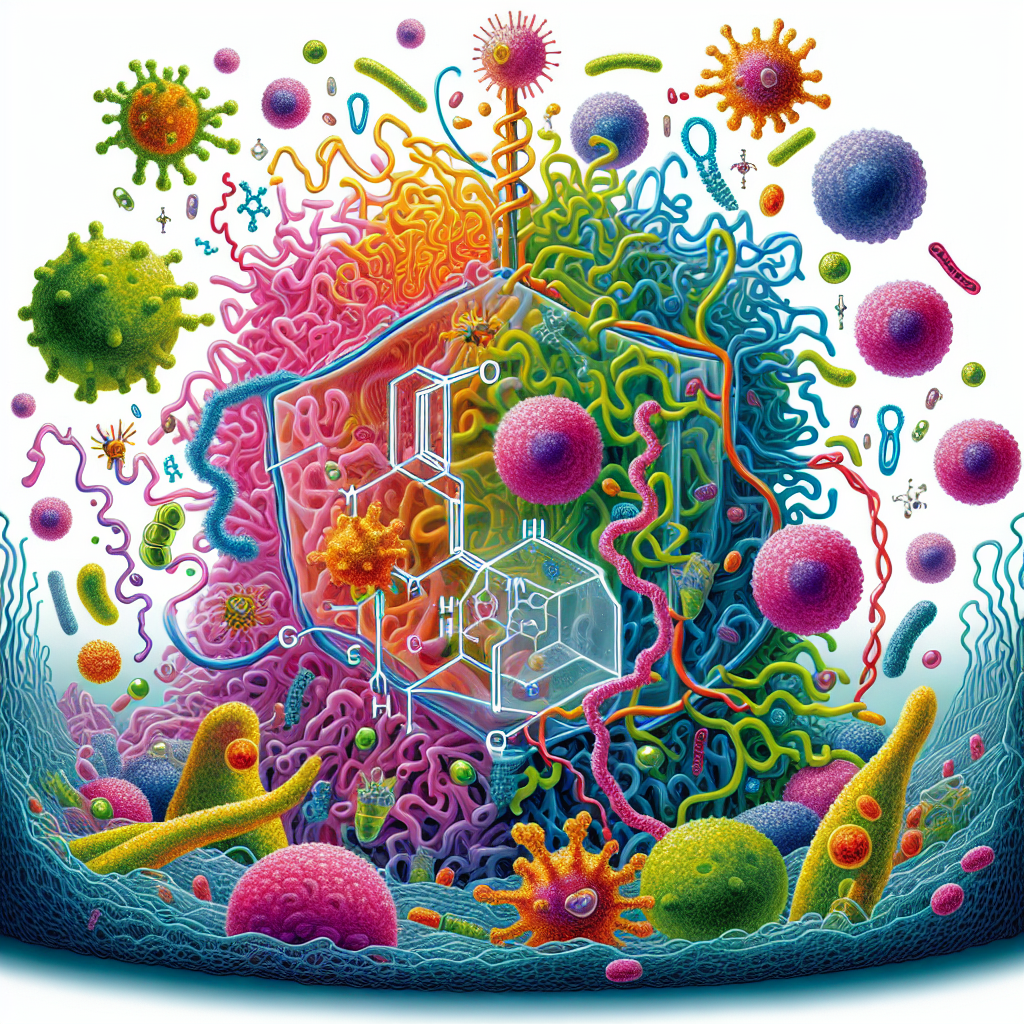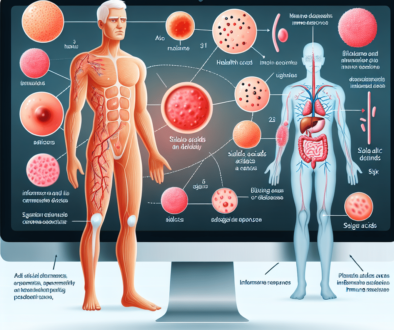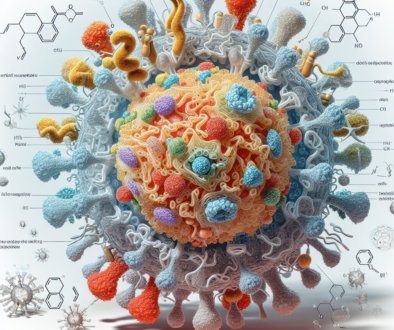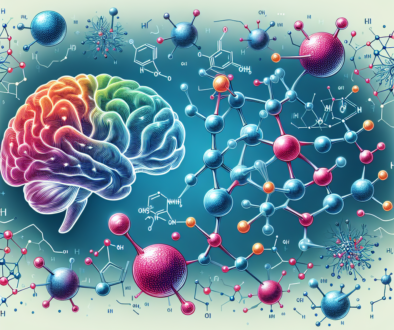Sialic Acid: Boosting Body’s Defense Mechanisms
-
Table of Contents
- Sialic Acid: Enhancing the Body’s Natural Defense Mechanisms
- Understanding Sialic Acid
- The Role of Sialic Acid in Immune Defense
- Research on Sialic Acid and Immune Function
- Case Studies: Sialic Acid in Action
- Statistics: The Impact of Sialic Acid
- Boosting Sialic Acid Levels
- Conclusion: The Protective Power of Sialic Acid
- Enhance Your Health with ETprotein’s Protein Products
Sialic Acid: Enhancing the Body’s Natural Defense Mechanisms

Sialic acid, a term that may not be widely recognized outside of scientific circles, plays a crucial role in the human body’s defense system. This naturally occurring carbohydrate is found on the surfaces of cells and is a vital component of the glycoproteins and glycolipids that make up the cell membrane. Its significance in immune function, pathogen recognition, and cellular communication is profound. In this article, we will delve into the ways sialic acid contributes to boosting the body’s defense mechanisms, supported by research, examples, and statistics.
Understanding Sialic Acid
Sialic acid is a family of more than 50 different derivatives of neuraminic acid. The most common form in humans is N-acetylneuraminic acid (Neu5Ac). This sugar molecule is found at the outermost end of glycan chains on the cell surface, where it plays a pivotal role in various biological processes, including cell-cell interaction, signaling, and host-pathogen interactions.
The Role of Sialic Acid in Immune Defense
The immune system is a complex network of cells and proteins that defends the body against infection. Sialic acid is a key player in this system, contributing to the body’s defenses in several ways:
- Innate Immunity: Sialic acid is involved in the innate immune response, which serves as the first line of defense against pathogens. It helps to mask cells from viruses and bacteria that might otherwise attach and cause infection.
- Adaptive Immunity: It also plays a role in adaptive immunity by influencing the development and differentiation of B and T cells, which are crucial for the immune system’s ability to remember and attack specific pathogens.
- Anti-inflammatory Properties: Sialic acid has anti-inflammatory effects, which can help to prevent damage to tissues during an immune response.
- Recognition and Clearance: It aids in the recognition and clearance of damaged cells and pathogens from the bloodstream.
Research on Sialic Acid and Immune Function
Several studies have highlighted the importance of sialic acid in immune function. For example, research has shown that sialic acid residues can inhibit the complement system, a part of the immune system that helps to clear pathogens, by binding to factor H, which regulates complement activation. Additionally, sialic acids are recognized by siglecs (sialic acid-binding immunoglobulin-type lectins), a family of proteins found on the surface of immune cells that modulate immune responses.
Another study has demonstrated that sialic acid can prevent the recognition of host cells by the influenza virus, which looks for these sugars as a point of entry into the cell. By masking these sites, sialic acid can reduce the likelihood of viral infection.
Case Studies: Sialic Acid in Action
Case studies have provided real-world examples of how sialic acid impacts immune function. For instance, individuals with genetic mutations affecting sialic acid production often suffer from increased susceptibility to infections, demonstrating the protective role of sialic acid.
In another case, the supplementation of sialic acid in animal models has been shown to improve learning and memory, suggesting a link between sialic acid and brain health, which is closely tied to the immune system.
Statistics: The Impact of Sialic Acid
Quantitative data further underscores the importance of sialic acid. Research indicates that the human brain contains high levels of sialic acid, comprising nearly 20% of the glycan content in the brain. This abundance is indicative of its critical role in neural function and protection against neural pathogens.
Moreover, studies have found that breast milk, which is rich in sialic acid, can significantly boost the immunity of infants, providing them with a better defense against pathogens during early development.
Boosting Sialic Acid Levels
Given the importance of sialic acid in immune function, finding ways to maintain or boost its levels in the body could be beneficial. Dietary sources of sialic acid include:
- Dairy products, especially whey protein
- Eggs
- Meat
Additionally, some dietary supplements contain sialic acid or its precursors, which may help to support the immune system.
Conclusion: The Protective Power of Sialic Acid
In conclusion, sialic acid is a vital component of the body’s defense mechanisms. Its roles in immune function are diverse, from acting as a physical barrier against pathogens to modulating inflammatory responses and aiding in the clearance of unwanted cells. Research and case studies have provided compelling evidence of its protective effects, and statistics have shown its prevalence in immune-related tissues such as the brain and breast milk. As we continue to understand more about this remarkable molecule, the potential for sialic acid to contribute to health and wellness becomes increasingly clear.
Enhance Your Health with ETprotein’s Protein Products
If you’re looking to support your body’s defense mechanisms, consider incorporating high-quality protein products from ETprotein into your diet. ETprotein offers a range of organic, non-GMO, allergen-free protein powders that can help boost your intake of essential nutrients, including amino acids that are precursors to sialic acid.
With a commitment to purity and quality, ETprotein’s products are an excellent choice for those seeking to enhance their health and support their immune system. Whether you’re interested in sports nutrition, weight management, or general wellness, ETprotein has a protein solution for you.
About ETprotein:
ETprotein, a reputable protein and L-(+)-Ergothioneine (EGT) Chinese factory manufacturer and supplier, is renowned for producing, stocking, exporting, and delivering the highest quality organic bulk vegan proteins and L-(+)-Ergothioneine. They include Organic rice protein, clear rice protein, pea protein, clear pea protein, watermelon seed protein, pumpkin seed protein, sunflower seed protein, mung bean protein, peanut protein, and L-(+)-Ergothioneine EGT Pharmaceutical grade, L-(+)-Ergothioneine EGT food grade, L-(+)-Ergothioneine EGT cosmetic grade, L-(+)-Ergothioneine EGT reference grade and L-(+)-Ergothioneine EGT standard. Their offerings, characterized by a neutral taste, non-GMO, allergen-free attributes, with L-(+)-Ergothioneine purity over 98%, 99%, cater to a diverse range of industries. They serve nutraceutical, pharmaceutical, cosmeceutical, veterinary, as well as food and beverage finished product distributors, traders, and manufacturers across Europe, USA, Canada, Australia, Thailand, Japan, Korea, Brazil, and Chile, among others.
ETprotein specialization includes exporting and delivering tailor-made protein powder and finished nutritional supplements. Their extensive product range covers sectors like Food and Beverage, Sports Nutrition, Weight Management, Dietary Supplements, Health and Wellness Products, and Infant Formula, ensuring comprehensive solutions to meet all your protein needs.
As a trusted company by leading global food and beverage brands and Fortune 500 companies, ETprotein reinforces China’s reputation in the global arena. For more information or to sample their products, please contact them and email sales(at)ETprotein.com today.














